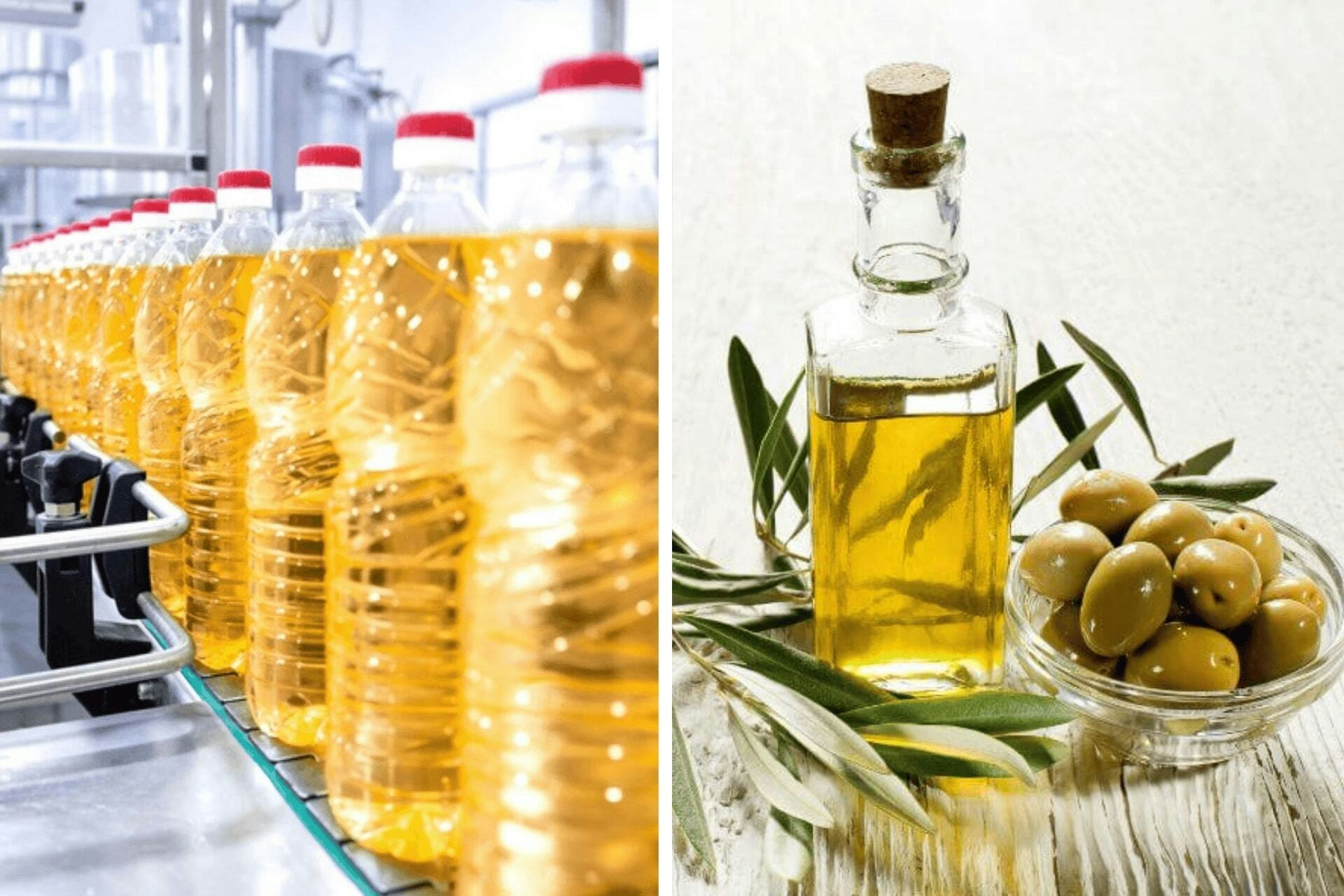Canola oil is a kitchen staple that shows up in everything from baked goods to stir-fries. Because it’s so versatile, many recipes call for it as the main cooking oil.
Still, some families like to explore other options — sometimes for variety, and sometimes because they prefer oils that are less processed or viewed as more natural.
In this article, we’ll take a closer look at canola oil itself and then explore several substitutes you can use in your cooking and baking.
What is Canola Oil?
Canola oil comes from the seeds of the canola plant, a crop closely related to rapeseed. To make the oil, the tiny seeds are harvested and then crushed to release their natural oils.
The result is a cooking oil that’s pale yellow, very mild in taste, and smooth in texture. Because it doesn’t have a strong flavor, canola oil blends easily into many dishes. It’s also known for handling higher cooking temperatures, making it a common choice for frying, roasting, and baking.
Still, some people are cautious about canola oil. Much of it is made from genetically modified (GMO) plants, and it often goes through heavy refining before being bottled ❶.
These are reasons why some families look for other cooking oils to use in their kitchens.
Related: Is Canola Oil Banned in Europe?
Canola Oil Substitutes
If you’d like to swap out canola oil, there are plenty of other choices. Each oil or fat has its own flavor, texture, and best uses in the kitchen. Some work better for high-heat cooking, while others shine in dressings.
Here are a few options you might consider:
Algae Cooking Oil
Algae cooking oil is made from microalgae and has a neutral flavor, which means it won’t change the taste of your dishes. It also has the highest smoke points among cooking oils, around 535°F, making it great for high-heat cooking.
Because it stays stable at such high temperatures, this cooking oil can be used for stir-frying, roasting, or even searing meat. It’s also naturally high in monounsaturated fats, which are considered heart-healthy.
Altogether, it can easily take the place of canola oil in recipes where you don’t want the oil to affect the flavor.
Avocado Oil
Avocado oil is pressed from the flesh of avocados and has a mild, slightly buttery taste. Like canola oil, it can handle high heat without breaking down, so it’s useful for many cooking methods.
Many people use avocado oil for roasting vegetables, grilling, or pan-frying. It’s also a good choice for salad dressings and dips, since its flavor blends well without overpowering the other ingredients.
Related: Avocado Oil Substitutes
Olive Oil
Olive oil is one of the oldest and most popular oils worldwide. It comes in different forms, with extra virgin olive oil being less processed and having a stronger flavor. This makes it a favorite for drizzling over foods or using in low-heat cooking.
For recipes that require higher heat, refined or “light” olive oil is a better choice. It has a milder taste and can be used for roasting, baking, or even frying in place of canola oil.
Related: Extra Virgin Olive Oil vs. Olive Oil
Coconut Oil
Coconut oil is unique because it’s solid at room temperature but melts when heated. It has a natural coconut flavor that comes through in certain dishes, which can be a plus or a drawback depending on your taste.
This oil is best for baking or sautéing. It can add a light coconut flavor to cookies, cakes, or curries, making it a good substitute when you want both function and a hint of extra taste.
Related: Coconut Oil Substitutes
Grapeseed Oil
Grapeseed oil comes from the tiny seeds left behind during winemaking. It’s known for being light in color and flavor, which makes it easy to use in both sweet and savory recipes.
Because it has a moderate smoke point, grapeseed oil works well for stir-frying, sautéing, and even making sauces or homemade mayonnaise. Its neutral taste and versatility make it a good substitute for canola oil in recipes where you don’t want the cooking fat to change the flavor of the dish.
Related: Grapeseed Oil Substitutes
Safflower Oil
Safflower oil is made from the seeds of the safflower plant and has a very neutral taste. One of its standout features is its high smoke point, which allows it to handle deep-frying and roasting without burning.
It can also be used in baked goods or light dishes where you don’t want the flavor of the oil to come through. This makes it one of the closer substitutes for canola oil in recipes that rely on a mild, background oil.
Sunflower Oil
Sunflower oil is pressed from sunflower seeds and has a mild flavor that doesn’t interfere with the taste of food. Like safflower oil, it is often chosen for its neutral quality and versatility in the kitchen.
Cooks use sunflower oil for frying, baking, or even in salad dressings. It’s a practical substitute when you need a multipurpose oil that behaves much like canola oil in different recipes.
Related: Sunflower Oil Substitutes
Butter or Ghee
Butter and ghee are not plant-based oils, but they are still common replacements for canola oil. Butter adds richness and flavor, especially in baking, where it gives cakes, cookies, and breads a softer texture and golden color.
Ghee, which is clarified butter with the milk solids removed, has a higher smoke point than butter. This makes it a stronger option for frying or sautéing, while still offering the rich, savory taste of butter.
Summary
Canola oil is a go-to ingredient in many kitchens, but it’s not the only option. Depending on what you’re cooking, you can turn to a variety of substitutes — like olive oil for salads, avocado oil for roasting, or butter for baking — to get the flavor and performance you need.
Each choice comes with its own strengths, whether it’s handling high heat, adding richness, or keeping flavors light and neutral.
One option worth exploring is algae cooking oil from the Algae Cooking Club. With its 535°F smoke point, neutral flavor, and high monounsaturated fats, it’s a versatile choice that works for everyday cooking and feels like a smart upgrade from canola oil.
FAQs
What’s the best canola oil substitute for baking?
Avocado oil and olive oil are excellent choices for baking because they have a neutral to mild flavor that won’t overpower sweet recipes. Coconut oil can also work well in baked goods, especially if you enjoy a hint of coconut taste.
What’s the best canola oil substitute for high-heat cooking?
Algae cooking oil is one of the best options thanks to its very high smoke point of about 535°F. Avocado oil is another solid substitute, holding up well to frying, roasting, or searing without breaking down.
What’s the best canola oil substitute for low-heat cooking?
For light sautéing, drizzling, or salad dressings, olive oil and grapeseed oil are great choices. Their subtle flavors make them versatile while adding a smooth finish to dishes that don’t require high heat.




